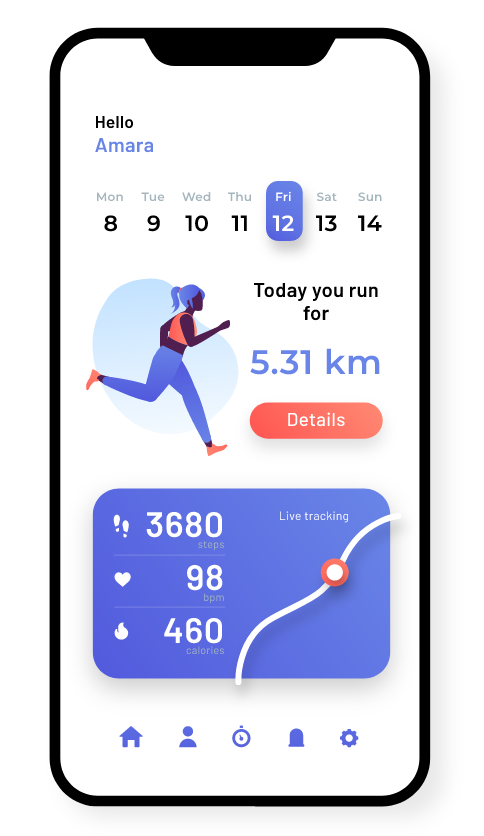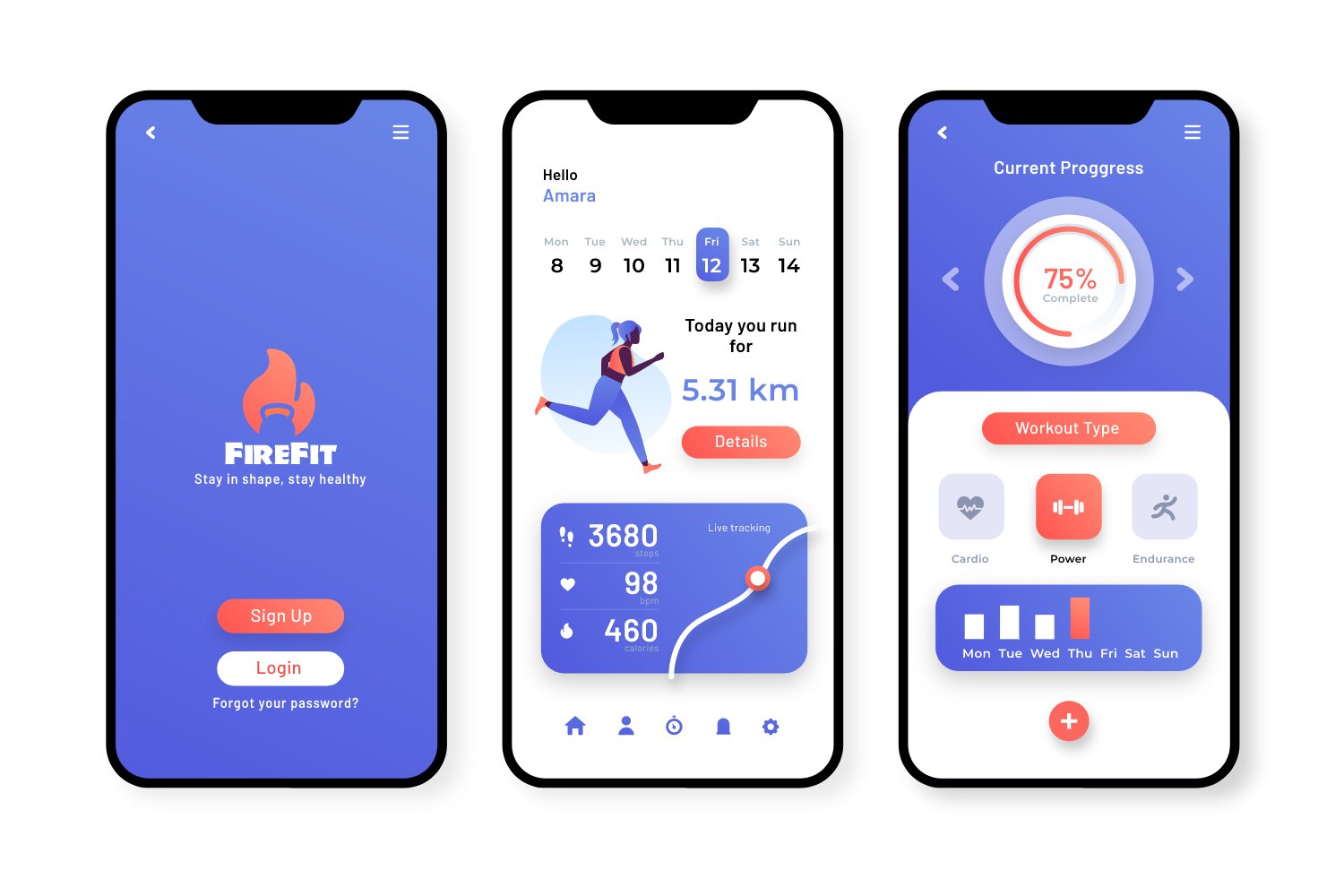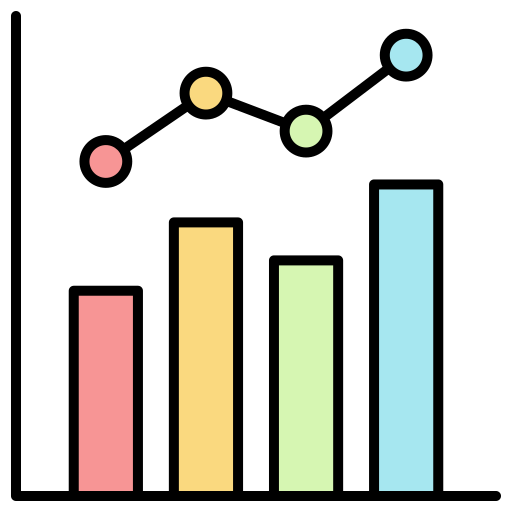- Rishi.webbharat
- +91-8745952657
- info@wbntechnology.in
iOS mobile application development is the process of creating mobile applications for Apple’s iOS operating system, which powers iPhone, iPad, and iPod Touch devices.

iOS mobile application development is the process of creating mobile applications for Apple’s iOS operating system, which powers iPhone, iPad, and iPod Touch devices. Here are some key aspects of iOS mobile application development:
Programming Language: iOS applications are typically developed using Apple’s Swift programming language, which was introduced in 2014. Objective-C, an older programming language, is still supported but less commonly used.
Integrated Development Environment (IDE): Xcode is the primary IDE for developing iOS applications. It includes a range of tools and features for developing, debugging, and testing iOS applications.
User Interface Design: iOS applications typically have a unique and intuitive user interface design that is consistent with Apple’s Human Interface Guidelines (HIG). These guidelines outline best practices for designing intuitive and user-friendly iOS applications.
App Store Submission: All iOS applications must be submitted to the App Store for approval before they can be downloaded by users. The approval process includes a review of the application’s functionality, design, and compliance with Apple’s guidelines.
Development Frameworks: Apple provides a range of development frameworks and APIs for building iOS applications, such as UIKit for building user interfaces, Core Data for managing data, and CloudKit for cloud-based storage.
Testing: Testing is a crucial aspect of iOS application development, and Apple provides a range of testing tools and frameworks for developers, such as XCTest for unit testing and XCUITest for UI testing.
Overall, iOS mobile application development is a complex and challenging process that requires a range of skills and expertise. However, with the right tools and resources, developers can create high-quality and engaging iOS applications that meet the needs of users.
iOS is known for its robust security features, which help to protect user data and prevent unauthorized access to the device or application.
iOS apps can integrate with other Apple devices and services, such as iCloud, Apple Watch, and Apple Pay, providing a seamless and interconnected experience across devices.

iOS apps are typically designed to provide a seamless and intuitive user experience, with a focus on usability and ease of use.
iOS apps can be developed using Apple's Swift programming language, which is designed to be easy to learn and use, with a range of powerful development tools and resources available to developers.

Overall, iOS mobile apps offer a range of benefits for users, including security, user experience, integration with Apple ecosystem, high-quality hardware, and swift development. These benefits make iOS an attractive platform for developers and businesses looking to create engaging and high-quality mobile applications.

Swift is the primary programming language used for iOS application development, so it's essential to have a deep understanding of the language's syntax, data types, control structures, and other key features.

Turn to our experts to perform comprehensive, multi-stage testing and auditing of your software.

Apple provides a range of frameworks and APIs for building iOS applications, such as UIKit for building user interfaces, Core Data for managing data, and CloudKit for cloud-based storage. It's important to have a good understanding of these frameworks and APIs and how they can be used to develop high-quality iOS applications.

Trust our top minds to eliminate workflow pain points, implement new tech, and consolidate app portfolios.

iOS applications typically have a unique and intuitive user interface design that is consistent with Apple's Human Interface Guidelines (HIG). It's important to have a good understanding of these guidelines and best practices for designing intuitive and user-friendly iOS applications.

Our ORM Services have proven to be crucial in the battle against fake online Revices.

We provide you with the strategic guidance that helps you to explore
We make sure your App product is easy to use and perform optimally in correlation with business objectives


We provide you with the strategic guidance that helps you to explore
We make sure your App product is easy to use and perform optimally in correlation with business objectives

We help businesses elevate their value through custom software development,
product design, QA and consultancy services.





Apple has a large and loyal user base, with millions of people around the world using iOS devices. This presents a significant market opportunity for developers

iOS devices are known for their high quality and security standards. Apple has strict guidelines for app development and review, ensuring that only high-quality

iOS users are more likely to spend money on apps and in-app purchases compared to users of other platforms. This presents a significant revenue potential for developers and businesses

iOS devices are tightly integrated with the Apple ecosystem, including other Apple devices and services such as iCloud, Apple Pay, and Apple Watch.
The primary programming language used for iOS app development is Swift, which was introduced by Apple in 2014. Objective-C is also used for legacy apps, but Swift has become the primary language for new iOS app development.
The cost of developing an iOS app can vary widely depending on a range of factors, such as the complexity of the app, the features and functionality required, and the experience level of the development team. On average, the cost of developing an iOS app can range from $10,000 to $150,000 or more.
The timeline for developing an iOS app can also vary widely depending on the complexity of the app and the experience level of the development team. On average, the development timeline for a basic iOS app can range from 2-3 months, while more complex apps can take 6-12 months or more.
To submit an iOS app to the App Store, you must first create an Apple Developer account and follow the submission process outlined in the App Store Connect portal. This involves submitting your app for review and meeting Apple’s guidelines and requirements for iOS app development.
Native iOS apps are developed specifically for iOS devices using Swift or Objective-C and provide the best performance, user experience, and access to device hardware and features. Hybrid iOS apps are developed using web technologies like HTML, CSS, and JavaScript and are wrapped in a native shell to be distributed as an iOS app. Hybrid apps can be more cost-effective to develop but may sacrifice some performance and user experience compared to native apps.
There are several ways to monetize an iOS app, such as charging users to download the app, offering in-app purchases or subscriptions, displaying ads within the app, or selling user data to third-party advertisers or partners. The most effective monetization strategy will depend on the nature of your app and your target audience.